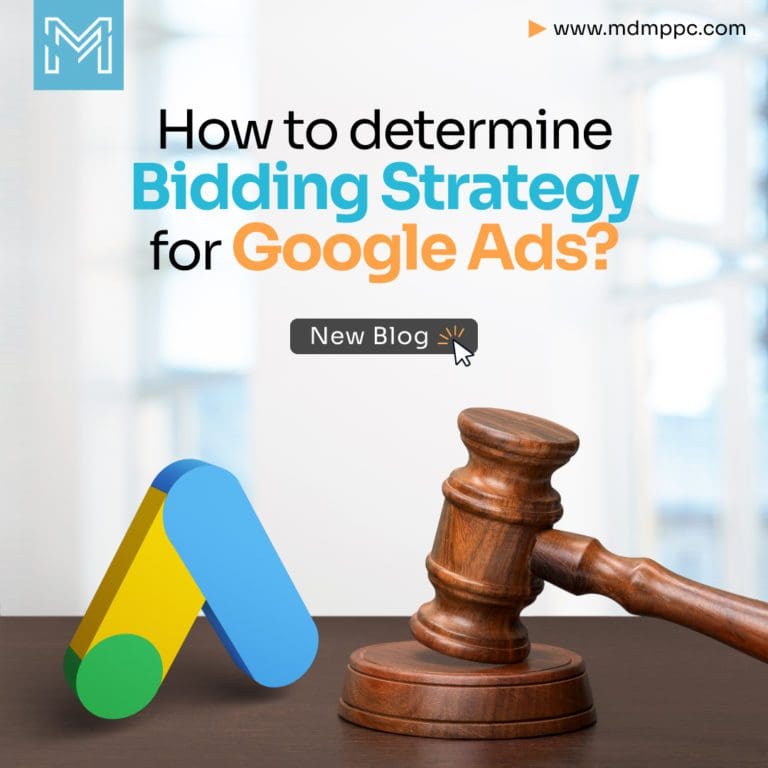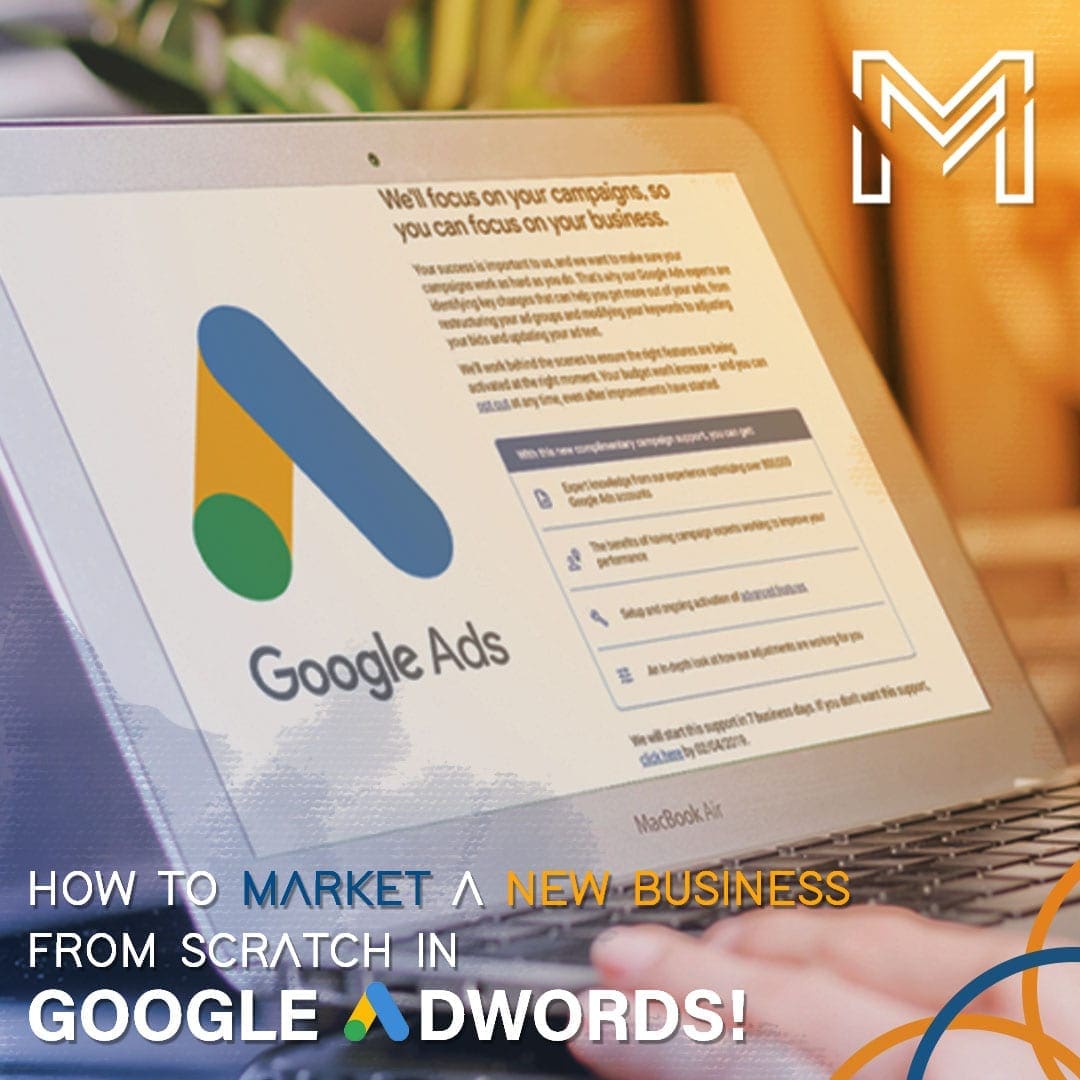Are you tired of spending money on Google Ads without seeing the desired results?
It’s time to revamp your bidding strategy!
Determining the right bidding approach can make a significant difference in your ad performance and ROI. But with so many options, it can be overwhelming to choose the best one for your business.
In this blog post, we’ll guide you through everything you need to know about determining an effective bidding strategy for Google Ads that will help you get more clicks and conversions while staying within budget. So let’s dive in!
What are Google Ads?
Google Ads is an online advertising platform developed by Google.
Advertisers bid on keywords that they believe potential customers are searching for. When someone searches for those terms, Google displays the advertiser’s ads alongside the search results. The advertiser pays only when someone clicks on their ad.
AdWords is Google’s main advertising product and is the largest and most popular PPC (pay-per-click) advertising platform in the world.
Google Ads can be used to target potential customers based on a variety of criteria, including geographic location, demographic information, and interests. Advertisers can also use Google Ads to reach people who have previously visited their website or interacted with their brand online.
Google Ads helps businesses reach customers across the web, on Google’s search network, and on partner websites.
By setting a budget and choosing specific keywords, advertisers can create ads that appear at the top of Google search results as well as in other places across the web.
What are the various bidding strategies for Google Ads?
There are various bidding strategies for Google Ads, and the best one for your campaign depends on your goals. The most common Google ads bidding strategies are manual bidding, automatic bidding, and target cost-per-acquisition (CPA) bidding.
1. Manual Bidding
Manual bidding is the simplest and most common bidding strategy. You set a maximum CPC bid for each keyword, and Google will only charge you that amount when someone clicks on your ad. This is a good option if you want to have more control over your budget and bids. It simply means that you will be manually setting your bids for each and every keyword that you are targeting. This can be a bit time-consuming, but it does allow you to have more control over your campaigns.
2. Automatic bidding
Google sets your bids for you based on your campaign goals. This can be helpful if you’re not sure how to set bids yourself, but it does take away some control over your budget. In automatic bidding, Google will automatically set your bids for you based on a number of factors. This can be a great option if you don’t have the time to manually set your bids, but it can also lead to unpredictable results.
There is the option of using a hybrid approach that combines both manual and automatic bidding. This can be a good middle ground between the two extremes, and it can help you to get the best of both worlds. Whichever approach you ultimately choose, make sure that you test out each one thoroughly before making a final decision.

3. Target CPA bidding
It is a more complex strategy that sets your bids based on how much it costs to acquire a customer. This can be helpful if you’re looking to maximize conversions or sales from your campaign.
Ultimately, the best bidding strategy for you depends on your goals and what you’re willing to spend. If you’re not sure which strategy to choose, start with manual bidding and then experiment with other options to see what works best for you.
The best strategy for you may depend on your goals and budget, so it’s important to experiment with different options to find the one that works best for you.
Other bidding strategies for Google Ads are:
Target ROAS (Return on Ad Spend):
Target ROAS is a bidding strategy that aims to maximize the return on ad spend by automatically setting bids based on the estimated value of each conversion. It uses historical data to predict the value of each conversion and adjust bids accordingly. This strategy works well for businesses with a high-profit margin, as it focuses on maximizing the return on investment.
Maximize Clicks:
Maximizing clicks is a bidding strategy that automatically sets bids to get as many clicks as possible within your budget. This strategy is useful for businesses looking to increase website traffic or build brand awareness, but it may not necessarily result in high-quality conversions.
Maximize Conversions:
Maximizing conversions is a bidding strategy that automatically sets bids to get as many conversions as possible within your budget. This strategy works well for businesses with a defined conversion goal, such as a lead form submission or a purchase.

Maximize Conversion Value:
Maximizing conversion value is a bidding strategy that aims to maximize the total conversion value (revenue) within your budget. It uses machine learning algorithms to adjust bids for each auction based on the estimated value of each conversion. This strategy is useful for businesses with a high average order value, as it focuses on maximizing the revenue generated by each conversion.
Target Impression Share:
Target impression share is a bidding strategy that sets bids to achieve a certain percentage of ad impressions in a specific location (e.g. top of page, absolute top of page). This strategy is useful for businesses looking to increase brand visibility or dominate a specific market.

Enhanced Cost-per-Click (ECPC):
Enhanced CPC is a bidding strategy that automatically adjusts your manual bids based on the likelihood of a conversion. It uses machine learning algorithms to adjust bids for each auction based on factors such as device, location, and audience. This strategy is useful for businesses looking to increase conversions while still maintaining control over their bids.
Viewable CRM (cost per 1,000 impressions):
Viewable CPM is a bidding strategy that charges you based on the number of times your ad is seen and is also viewable by users. It works well for businesses looking to increase brand visibility and awareness.
Maximum CPM (cost-per-view):
Maximum CPM is a bidding strategy that allows you to set the maximum amount you’re willing to pay for each ad view. It works well for businesses looking to increase video ad views and engagement.
Target CPM (cost per 1,000 impressions):
Target CPM is a bidding strategy that sets bids to achieve a certain cost-per-impression. It works well for businesses looking to increase brand visibility while maintaining control over their advertising costs.
Portfolio bid strategies:
Portfolio bid strategies are a group of bidding strategies that allow you to manage multiple campaigns and ad groups with a shared budget and bidding strategy. This can be useful for businesses with multiple campaigns targeting different audiences or products. Some examples of portfolio bid strategies include the Target CPA portfolio, Maximize Conversions portfolio, and the Target ROAS (return on ad spend) portfolio.
Choosing the right bidding strategy for your Google Ads campaign is essential for achieving your advertising goals. Each bidding strategy has its own strengths and weaknesses, and it’s important to consider factors such as your advertising budget, conversion goals, and target audience when deciding which strategy to use.
With careful planning and testing, you can find the bidding strategy that works best for your business and drive maximum results from your Google Ads campaigns.
How to determine the right bid strategy?
There is no one-size-fits-all answer when it comes to determining the right bid strategy for Google Ads. The best approach depends on your advertising goals and objectives.
Google Ads offers various bid strategies that are designed to help advertisers achieve their advertising goals. The bid strategy to be used will depend on the type of campaign, the networks targeted, and the desired outcome.
Here are the bid strategies available and how to determine the most suitable one for each advertising goal:
1. Conversions:
If the goal is to get customers to take direct action on a website, and conversion tracking is being used, then it is best to focus on conversions. Smart Bidding can be used to optimize the bids for conversions in each auction. The five Smart Bidding strategies that can be used for conversions are Target CPA, Target ROAS, Maximize Conversions, Maximize Conversion Value, and Enhanced CPC (ECPC).

2. Clicks:
If the goal is to generate traffic to a website, focusing on clicks is ideal. The two cost-per-click bid strategies available are Maximize Clicks and Manual CPC bidding. Maximize Clicks is the simplest way to bid for clicks, while Manual CPC bidding lets advertisers manage their maximum CPC bids themselves.

3. Impressions:
If the goal is to increase brand awareness, focusing on impressions is the strategy. Bid strategies available to maximize visibility are Target Impression Share, CPM, tCPM (Target cost-per-thousand impressions), and vCPM ( cost per thousand viewable impressions).

4. Views or Interactions (Video Ads Only):
If the goal is to increase views or interactions with video ads, then CPV or CPM bidding can be used. If the goal is to increase product or brand consideration, then CPV can be used.
The bid strategy chosen should align with the advertising goal, and it is essential to consider the campaign settings and network being targeted before choosing a bid strategy. Smart Bidding can be used to optimize bids for conversions, while Maximize Clicks and Manual CPC bidding are suitable for getting clicks.
Advertisers can use Target Impression Share, CPM, tCPM, or vCPM to focus on visibility, and CPV or CPM bidding can be used to increase views or interactions with video ads.

Final Word
Choosing your bid strategy is a long-drawn process. Test, test, and test- meaning you’ve to experiment with various types of bidding strategies.
At McElligott Digital Marketing, our Google Ads experts have years of experience running ad campaigns for businesses.
We craft, depending on your business and business goals, the ad campaigns that give you the best ROI and result in getting your brand out there online.
Do you need help with running Google Ads campaigns? We’re here for you.





